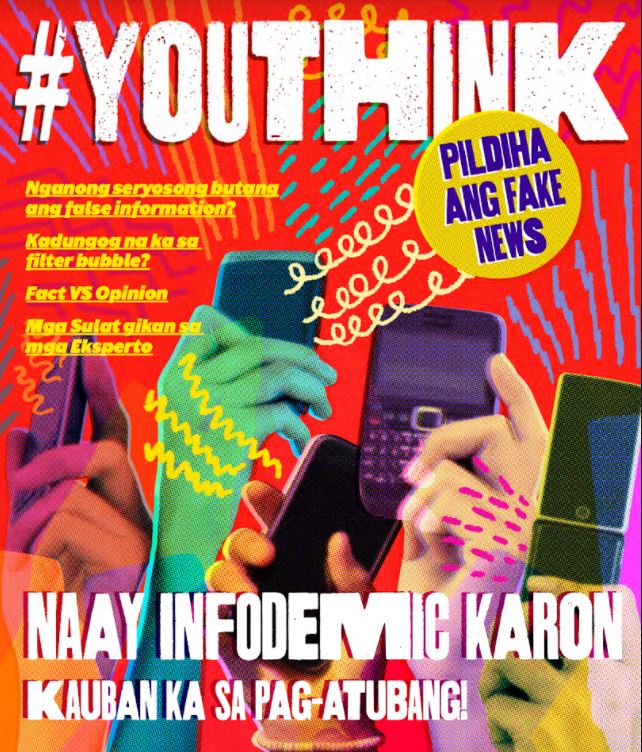Google, CANVAS launch Cebuano magazine to help fight misinformation

Google and the Center for Art, New Ventures, and Sustainable Development (CANVAS) have together launched the Cebuano version of #YOUTHink magazine to highlight the importance of local language diversity in battling misinformation.
YOUTHink is a local youth-oriented magazine that aims to address misinformation through media and information literacy. Filled with helpful articles, the 42-page publication comes in a fun and creative zine-style format to engage young readers. It covers several topics such as the types of misinformation and their negative effects, why context matters, how to identify a fact from an opinion, and how to avoid falling for fake information among others. The magazine was translated into Cebuano by teachers and translators Hannah Aranas and Xi Zuq.
Written by CANVAS Founder and Executive Director Gigo Alampay, a lawyer specializing in information and communications technology law and policy, #YOUTHink was first published by CANVAS in English in January 2021, as commissioned and funded by Google in the Philippines. The tech company conceived the title of the magazine to put emphasis on two elements: “youth” which is a vital force in addressing misinformation, and “critical thinking” which is necessary to exercise before believing, posting or sharing any information online.
“Google is committed to helping fight misinformation. We believe in the vital role of producing locally relevant learning materials to achieve this goal, while we continue to take down harmful content and raise authoritative information on our platforms,” said Mervin Wenke, Head of Communications and Public Affairs, Google Philippines. “People find it easier to understand content which uses a language that is local to them, that is why together with CANVAS, we published a Cebuano version of #YOUTHink.”
Mervin added, “This National Language Month (Buwan ng Wika) and beyond, we need to take a more inclusive approach and use local languages so more people, especially those going online for the first time or from vulnerable communities, can participate in the discussion and avoid falling for disinformation or misinformation. With Cebuano as one of the country’s major languages spoken by more than 9 million people, we hope that more Filipinos will benefit from this initiative.”
Similar to the first edition published in January 2021, Google provided funding support for the development, design, and publication of the Cebuano magazine. Initially, 5,000 copies will be distributed for free to schools, communities, and NGOs outside the National Capital Region.
The magazine includes letters and essays from several experts including: former COMELEC commissioner Atty. Luie Guia; infectious diseases specialist Dr. Edsel Salvana; scientist, and radio and TV speaker Dr. Reina Reyes; Ateneo de Manila University assistant professor of Philosophy Dr. Jacklyn Cleofas; and UP professor specializing in research on political communication and news media effects Dr. Clarissa David.
Gigo shared, “Along with the ongoing pandemic, there is also an ‘infodemic’ happening which endangers the lives of Filipinos. Publishing the media and information literacy magazine #YOUTHink in one of the country’s major local languages like Cebuano will help address this problem. Now more than ever, we also need the power of the youth–the target reader of the magazine–to uphold digital responsibility and critical thinking online.”
A PDF copy of the magazine can be accessed here (printing or sharing for selling purposes is strictly prohibited). For more information, visit: www.canvas.ph.
Good News Pilipinas is celebrating its 15th Anniversary in 2021 by giving away prizes! Subscribe to our Good News Pilipinas! TV YouTube channel and enter the raffle by sending us an email to editor@goodnewspilipinas.com saying what you like about our site.
The post Google, CANVAS launch Cebuano magazine to help fight misinformation appeared first on Good News Pilipinas.
Source: Good News Pilipinas



No comments